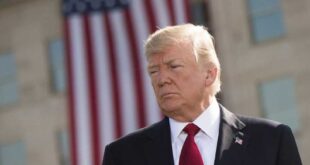Stana Dubajic
As the Syrian tragic war draws to its end, another potentially explosive development in the region is increasingly gaining media attention in recent weeks – the Iraqi Kurdish referendum. With less than two weeks left to the Referendum date, the Kurds seem to be faced with a “damned if you do, damned if you don’t” dilemma.
The referendum slated for September 25, 2017 has divided the global community with majority asking for its postponement, Iraq, Iran and Turkey openly opposing it, and Israel the only country to fully support it.
The US, UK and the UN, have earlier advised the Iraqi Kurdish leader Massoud Barzani to postpone the referendum, amid fears that the ill-timing could spark more conflict in the region jeopardizing the hard won victories against the terrorists and further destabilizing the region.
On Friday, Iraqi Kurdish leader Massoud Barzani said the vote would not be delayed, despite requests from the United States and other Western powers worried that the rising tensions between Baghdad and Erbil would impede fight against Islamist militants in Iraq and Syria.
Iraqi Prime Minister Haider al-Abadi labeled the move ‘hostile’. In an interview with the Associated Press news agency on Saturday, al-Abadi further said that if the Iraqi population is “threatened by the use of force outside the law, then we will intervene militarily”.
High level Saudi delegation has visited Erbil on Saturday, where they have met with Kurdish President Barzani, urging dialogue with Baghdad. The Saudi delegation, headed by Thamer al-Sabhan, Saudi Arab Gulf Affairs Minister expressed the Riyadh’s willingness to help establish dialogue and meditate unresolved issues between two parties.
Saudis however, have not expressed support or opposition to the referendum. The Kurdish president, during meeting with the Saudi delegation, said that Erbil has not closed the doors for dialogue on anyone, as reported by Kurdish media.
The White House issued a statement calling the holding of the referendum in disputed areas “particularly provocative and destabilising,” urging, “the Kurdistan Regional Government to call off the referendum and enter into serious and sustained dialogue with Baghdad, which the United States has repeatedly indicated it is prepared to facilitate.”
On his part, Turkish President Erdogan said in an interview on Friday that Barzani’s decision not to postpone the referendum was “very wrong”, while the Turkish Prime Minister Binali Yildirim said on Saturday, that the Kurdish independence referendum is a matter of national security, and that his country would take all the necessary steps in that direction.
Beside Turkey, both Syria and Iraq are openly opposed to the idea of carving the future Kurdish state out of their sovereign territories. Respect for the territorial integrity of Iraq and Syria, in particular, has been confirmed by the three guarantor states of Astana peace agreements – Russia, Turkey and Iran.
In this context, Israel’s support for independent Iraqi Kurdistan, as voiced by its Prime Minister Netanyahu does more harm than good to the Kurdish issue, not least because of the Israel’s poor relations with the Arab states where Kurdish minorities aspire for the establishment of their own, independent Kurdish state.
Israeli media outlet Haaretz published an analysis of the event, quipping “how often do the governments and regimes of the United States, Russia, Iran, Turkey, Iraq and Syria agree on the same policy? Next to never. But for once, they are on the same page about an event scheduled to take place a month from now.” All these powers, driven by diverse interests, are asking the Kurdistan Regional Government (KRG), the semi-autonomous administration of the Kurdish region in Northern Iraq, to postpone the referendum.
Despite the legitimacy of the Kurdish elusive quest for independence, current events are spelling doom for all involved in either case. Should the referendum go on as planned, there is a danger that the popular demands would put pressure on the regional government to translate the referendum vote into declaration of independence.
Lacking international support such a unilateral declaration of independence would lead to open conflict between the KRG and Baghdad. Succumbing to international demands to stop or postpone the referendum could lead to internal conflict within KRG – which in the longer term would jeopardize and weaken Kurdish quest for statehood, but in the short run would help the region regain stability and pave way for diplomatic divorce between Kurds and the four countries where the ethnic group constitutes a minority and demands autonomy – Iraq, Syria, Iran and Turkey.
To be sure, current regional political and security situation dictates that the Kurdish long quest for statehood need to wait for another more opportune time when the regional flames have been put out. It seems, however, that certain elements of Kurdish leadership disagree, as the displeasure at Western demands has already been expressed, including the ongoing demonstrations in Erbil, following the international demands to postpone the vote.
The question is ― whether the reason and political wisdom would take precedence over inflamed passions. A war between Baghdad and Erbil is the last thing the country and its people need.
________________
Stana Dubajic is an independent geopolitical researcher and analyst, based in the Middle East and the Balkans
 Geostrategic Media Political Commentary, Analysis, Security, Defense
Geostrategic Media Political Commentary, Analysis, Security, Defense





